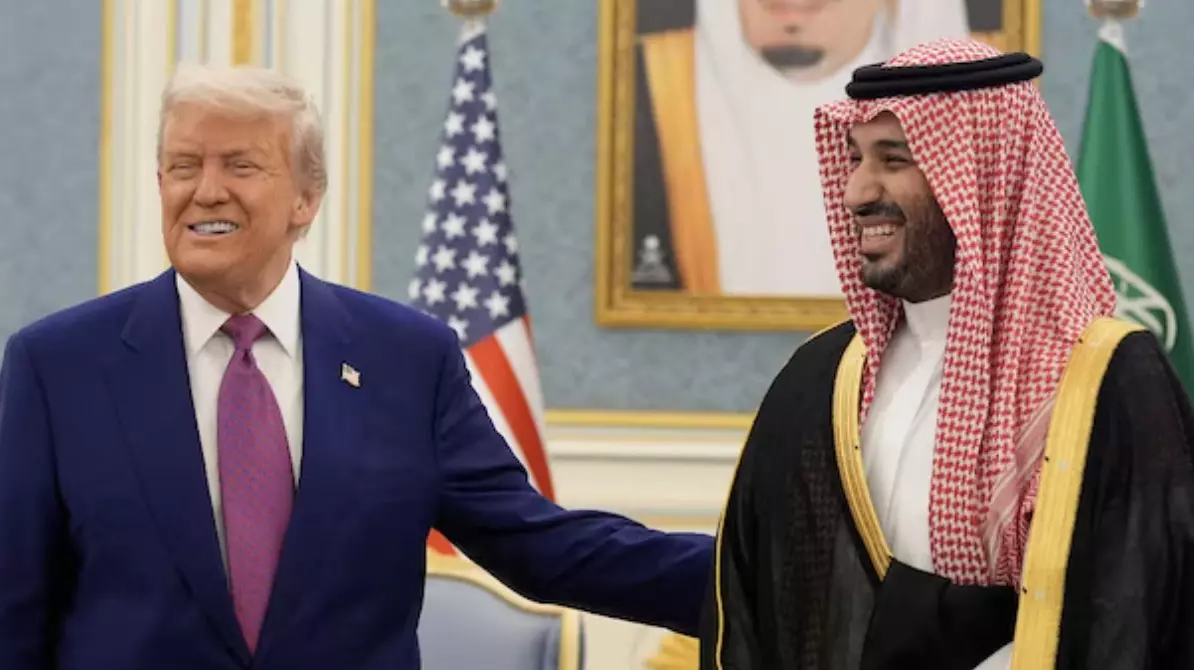Donald Trump is back in West Asia—He’s redrawing the region’s strategic map
Donald Trump is back in West Asia—He’s redrawing the region’s strategic map

In his first major overseas tour since returning to the White House, President Trump is on a whirlwind diplomatic mission to Saudi Arabia, the UAE, and Qatar. The agenda? Big-ticket deals, artificial intelligence, energy diplomacy, and a potential civilian nuclear pact. Noticeably missing: any stop in Israel. Instead, Trump is doubling down on transactional diplomacy with the Gulf monarchies, signaling a seismic shift in America’s regional playbook.
Old Ties, New Stakes
Trump’s ties to the Gulf run deep—beyond politics. From real estate ventures involving his children to sovereign funds pouring billions into U.S. interests, the foundations were laid long before this trip. Now, with the full weight of the presidency back behind him, Trump is cashing in on those relationships.
In exchange for arms, AI tech, and strategic assurances, Gulf nations are offering Washington what Trump values most: huge investments, photo-ops, and fast wins.
Saudi Arabia: Nuclear Ambitions & Oil Calculations
Crown Prince Mohammed bin Salman (MbS) remains Trump’s closest ally in the region. This visit is expected to push forward two top Saudi goals: a formal defense agreement with the U.S. and a go-ahead for a civilian nuclear energy program.
Previously, Washington linked nuclear support to Saudi normalization with Israel. That condition is now off the table. Instead, Trump appears ready to fast-track nuclear cooperation—no strings attached. In return, Riyadh is pledging up to $600 billion in U.S. investments, alongside a $3.5 billion arms deal.
But a quiet conflict simmers beneath the surface: Trump wants low oil prices to boost the U.S. economy. Saudi Arabia, committed to funding its Vision 2030 transformation, needs high prices. It’s a delicate tug-of-war playing out behind closed doors.
UAE: Betting on AI, Not Oil
The UAE is positioning itself as a global technology hub. With a $1.4 trillion investment plan aimed at AI, semiconductors, and green tech, Abu Dhabi wants less oil dependency and more digital dominance.
Biden-era export curbs on advanced chips had slowed this ambition. But under Trump, those restrictions are being rolled back. His administration has scrapped the “AI diffusion rule,” opening the door for U.S. tech firms like IBM, Qualcomm, and Alphabet to expand into the Gulf.
The message is clear: the UAE is no longer just about oil—it’s about chips, code, and climate innovation.
Qatar: The Diplomatic Bridge
Unlike its neighbors, Qatar plays a dual role—military host and regional mediator. With the largest U.S. base in West Asia at Al Udeid, Qatar remains a key defense partner. But it’s also emerged as a quiet power broker, from Gaza ceasefires to Taliban talks.
Now, Doha is using its leverage to lobby for a rollback of Caesar Act sanctions on Syria. It’s also cautiously exploring reconstruction efforts under President Ahmed al-Sharaa, Bashar al-Assad’s successor—but only with Washington’s green light.
Where’s Israel?
Trump’s decision to skip Israel is raising eyebrows. Amid ongoing conflict in Gaza, he’s floated controversial ideas—including direct U.S. administration of the territory. That hasn’t gone down well in Arab capitals.
Meanwhile, Israel reportedly views this Gulf tour as a soft deadline to reach a ceasefire. But Trump’s silence on the matter, and his pivot toward Arab allies, signals a potential shift: Israel may no longer be the central pillar of America’s West Asia policy.
The Iran Equation
Despite his “maximum pressure” history, Trump is now open to backchannel talks on Iran’s nuclear program—if it serves regional stability. The Gulf states, particularly Saudi Arabia and the UAE, are reportedly encouraging this approach, aiming to shape the terms of U.S.-Iran engagement.
Also on the discussion table: lifting sanctions on Syria, renaming the Persian Gulf to the “Arabian Gulf,” and developing a broader regional security alliance.
The Billion-Dollar Forum
The centerpiece of Trump’s visit: a mega U.S.-Saudi investment forum in Riyadh on May 13. The guest list includes Wall Street titans like BlackRock’s Larry Fink, tech leaders like Alex Karp of Palantir, and executives from Alphabet, IBM, Qualcomm, and Citigroup.
Also in attendance: senior White House figures shaping AI and crypto policy. Their presence underscores a key shift—America’s economic gravity is leaning east, toward the Gulf.
A Strategic Reset
This isn’t just a photo-op tour. Trump’s second-term Gulf policy is a full-blown strategic reset. It's a mix of defense deals, nuclear diplomacy, tech expansion, and oil politics—crafted around fast-moving transactions and long-term influence.
With Gulf leaders investing billions, aligning with U.S. tech firms, and expanding their diplomatic clout, Trump is betting big. His wager? That the Gulf—not Europe, not Asia—will deliver the headline-making deals and global leverage that define his legacy.

